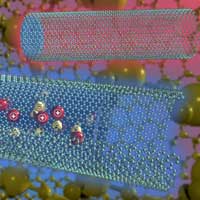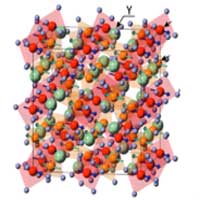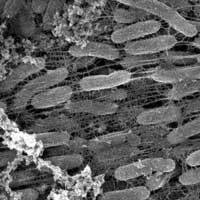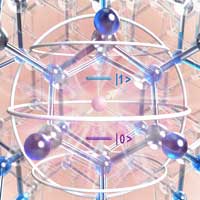 New method of fluid gating has implications for drug delivery, power generation and other uses.
New method of fluid gating has implications for drug delivery, power generation and other uses.
Tuesday, July 28, 2020
Discovery will allow more sophisticated work at nanoscale
 New method of fluid gating has implications for drug delivery, power generation and other uses.
New method of fluid gating has implications for drug delivery, power generation and other uses.
Probing the properties of magnetic quasi-particles
 Researchers have for the first time measured a fundamental property of magnets called magnon polarisation - and in the process, are making progress towards building low-energy devices.
Researchers have for the first time measured a fundamental property of magnets called magnon polarisation - and in the process, are making progress towards building low-energy devices.
Metal-breathing bacteria could transform electronics, biosensors, and more
 The ability of Shewanella oneidensis to produce molybdenum disulfide nanoparticle - a material that is able to transfer electrons easily, like graphene - is the focus of research.
The ability of Shewanella oneidensis to produce molybdenum disulfide nanoparticle - a material that is able to transfer electrons easily, like graphene - is the focus of research.
Research on metallic nanoparticles may lead to improved solar cells
 In a new study, a research group explain their outstanding success in harvesting 'hot electron holes'. The results of their work can be used to improve solar cells, photochemical reactions and photosensors.
In a new study, a research group explain their outstanding success in harvesting 'hot electron holes'. The results of their work can be used to improve solar cells, photochemical reactions and photosensors.
Solving materials problems with a quantum computer
 Scientists have developed a method paving the way to using quantum computers to simulate realistic molecules and complex materials, whose description requires hundreds of atoms.
Scientists have developed a method paving the way to using quantum computers to simulate realistic molecules and complex materials, whose description requires hundreds of atoms.
Subscribe to:
Comments (Atom)
